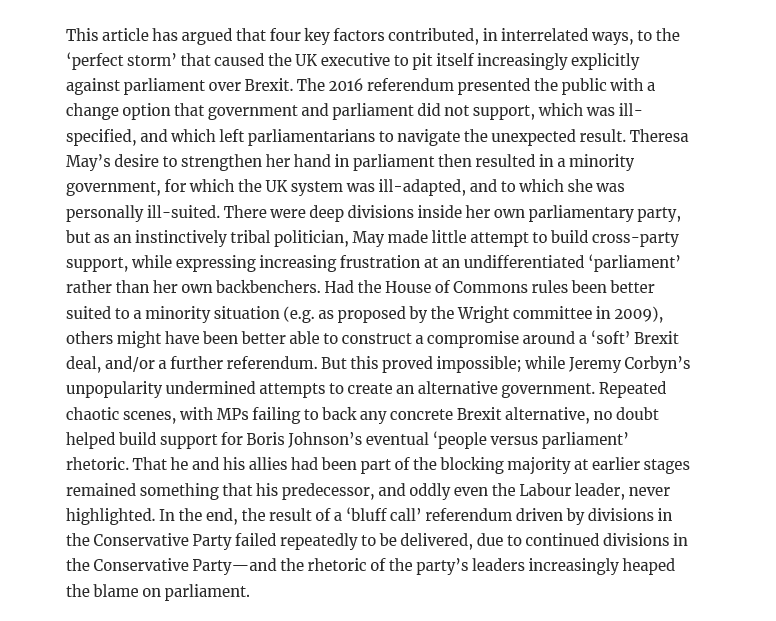Unit Director & @UKandEU Senior Fellow Meg Russell summarises her new article for the journal Parliamentary Affairs on what caused parliament's highly adversarial Brexit 'perfect storm'. 1/10
constitution-unit.com/2020/06/14/bre…
1. The 2016 Brexit referendum
The Leave result wasn't what the Prime Minister or most MPs wanted, but parliament was left to put it into effect.
This created clear tensions between parliamentary and popular sovereignty. 2/10
The UK is unaccustomed to minority governments, & proved ill-equipped or prepared to do what was required.
Prime Minister at the time, Theresa May, was rigid and tribal, making her fundamentally unsuited to managing a minority government. 3/10
The biggest blockage was division inside the Conservative Party – 118 Tory MPs rebelled in the first ‘meaningful vote’.
But May never publicly acknowledged this, choosing to blame ‘parliament’ rather than her own backbenchers. 4/10
bit.ly/3fsLcpD
Commons rules, which give the government control over the parliamentary agenda, seemed unsuited to a minority situation.
This made it hard for MPs to find an alternative parliamentary majority after May’s Brexit deal was defeated. 5/10
This exposed a debate around the meaning of ‘parliamentary’ sovereignty itself: who should have the last word – the parliamentary majority, or the executive? 6/10
Anti-parliamentary rhetoric increased in 2019. The PM was criticised for her statement following defeat of her deal, when she tried to position herself with the public against MPs, arguing ‘I am on your side’. 7/10
bit.ly/3fsM4up
He continued to blame ‘parliament’, suggesting ‘our MPs are just refusing time and again to deliver Brexit and honour the mandate of the people’.
But he himself had voted twice against May’s deal. 8/10
bit.ly/2A8nXkz
Meanwhile the party’s leaders increasingly heaped the blame on parliament. 9/10
These words are from the conclusion. Please share! 10/10
academic.oup.com/pa/advance-art…



